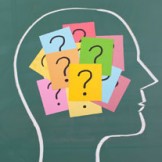Plain Language Doesn’t Have to Be Plain
I had a really great conversation with one of my coworkers the other day about the concept of “plain language” which really got me thinking about writing across all parts of government–local, state, federal… Here in the federal government, we talk about plain language–which is the idea that language should be easy to understand forRead… Read more »




